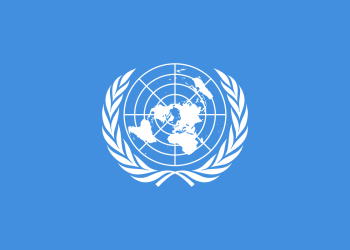Libya Herald Exclusive
Tripoli, 3 May:
Three main aims of Ministry of Economy
Speaking to an American business delegation last week, Libya’s Minister of . . .[restrict]Economy Ahmed Koshli pointed out that “there are three aims that the Ministry of Economy has at this stage. The first is the preparation of the business environment and suitable investment climate.”
‘The second is the day to day needs of the economy and the Libyan people. The third is to establish stability in the local market, all within a state of transition and post liberation,” he explained with a smile, hinting at the juggling act that his department must perform.
“We have a problem of inflation in commodities, and we have a weak infrastructure with regards to our monitoring departments,” he admitted to his trans-Atlantic audience.
Diversification of Libya’s income
“We are now researching and studying how to diversify Libya’s economy so as to create new sources of income,” he said, referring to Libya’s policy of diversification – much trumpeted by the old regime for years.
Improving the business environment
“We hope to encourage and develop economic activity – but most importantly is the preparation of the right business environment. We have a commercial law, but we are working on the internal rules and regulations together with the business community.”
The minister was referring to the series of meetings he held with the business community, starting in the end of January, where he proactively engaged with them and encouraged them to form a committee which revised these rules and regulations and presented him with their findings.
During that meeting, Koshli openly admitted that his ministry and the government did not have the mandate to change actual laws, but would do its best to bypass the worse of the debilitating laws set by the former non-business friendly regime, by tinkering with the internal rules and regulations.
Revising some rules and regulations
“We are revising these and we have started rolling out parts that are ready,” he continued. “These include those on the establishment of companies, commercial agencies, the rules for the Chambers of Commerce and the Commercial Registry, export-import and the Business Councils.” A draft of these revisions is now in circulation.
Establish a Competition Board
The Economy Minister also revealed that his department was aiming to “establish a competition board. This is something new and it should be out before the elections,” he felt. He went on to say that in his view Libya had, in general “a good commercial and investment law”.
“We have removed price controls and left it to the market mechanism,” he said, referring to the much hated and failed policy of price controls dictated by the former regime.
“We reopened the stock market recently, but there are not many companies active as there is still not the right environment for them to operate,” he freely admitted. “We are working on an important subject which is the small and medium sized enterprizes (SMEs). We are Libya’s investments. All this will need some time, but we are on the right path,” the minister felt.
To subsidize or not to subsidize?
Touching on a topic that is controversial and has attracted much debate within Libya recently, Koshli confirmed the present Libyan government’s view on the topic by saying that “we know subsidies are a distortion to the economy – we inherited this and continue with them during the transition period. We hope to replace them with cash subsidies,” he forecast.
“Subsidies will disappear one day when our living standards increase. We have another problem, which is that we don’t have a database to help indicate which people need subsidies.”
Construction projects in hand
“We are unfortunately obliged and committed to a lot of these projects,” Minister Koshly admitted. “If we default, it would be as if the [17 February] Revolution did not occur. Therefore, we have to revise them on a needs or utility bases, and those contracts that were signed on a corrupt bases will be reviewed,” he concluded.
Libya’s foreign Investments
Koshli admitted and confirmed that Libya‘s “investment decisions were political and not economic decisions. I am a member of the board of the Libyan Investment Authority (LIA), and therefore I was able to know some of these investments. We hope to reassess them and reform the management of these companies, and then the decision will be for the governments of the future as to what actions to take,” he concluded. [/restrict]







